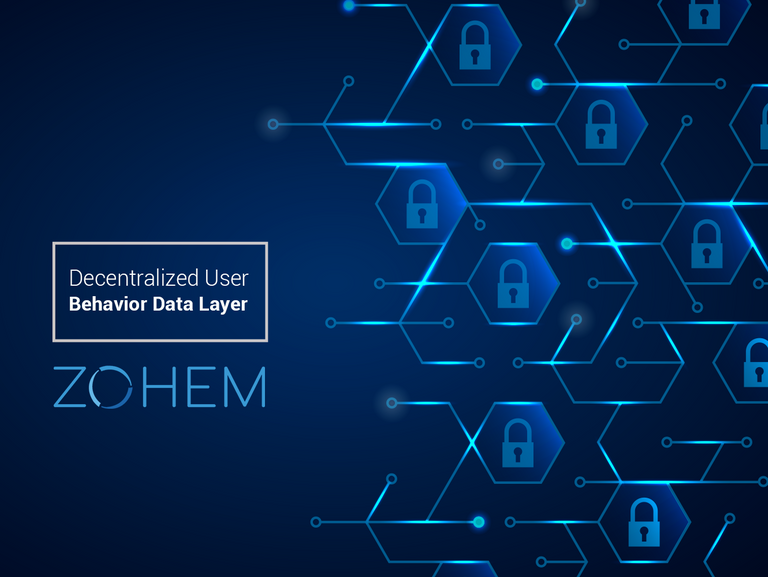#Zohem is a decentralized data exchange layer that is going to fundamentally change how the #adTech industry works.
Zohem’s#Zohem is a blockchain-based user behavior data exchange protocol that aims to resolve the current issues in the adTech industry and introduce a standardization to the exchanges transpiring between the key stakeholders of the industry. Core comprises of a common data layer to which all publishers will be able to contribute data and get rewarded for the same with #Zohem Data Tokens (ZDTs). Advertisers will be given access to this data in exchange for ZDTs, and they will also be rewarded for verifying the authenticity of the data points they have accessed. All the transactions on the Zohem platform will be backed by Smart Contracts.
.png)
The challenge
Free content, that is, news, videos et. al. is monetised by the $200 billion digital advertising industry. In the past two decades, online content publishers have been moving from the idea of selling digital space for showing ads to selling the attention of their audience. It is the understanding and capitalisation of this trend which has created goliaths of over $100 Bn like Google & Facebook.
While publishers put in the efforts for creating content, acquiring users, and engaging them in a beautiful experience on their platforms, they get less than 50% of the revenue generated from this cycle of activities. A major portion of the ad revenue i.e. about $100 Bn goes to Facebook and Google for “successfully” being able to:
1 - Generate a lot of useful user data
2 - Augment the data with that from other publishers
Because of unhealthy data collection methods employed by some DMPs, both users and publishers are at a risk of data theft. While it is the user whose data is being stolen, it is the publisher who suffers a loss of reputation. This further makes publishers wary of using trackers on their website.

The solution
A blockchain-based breakthrough in this #adTech space can ensure that publishers are the major gainers of the revenue generated from their data contributions. Because of the raw deal that the #adTech industry has given to publishers, they are bound to approach any new development with caution. Therefore, it is important that there are trust-building mechanisms such as smart contracts on data ownership, transactions between advertisers and publishers, etc., in the implementation of this new solution. With a proper data exchange protocol in place, which has the combined user activity data of all small publishers, we can have data as accurate & deep as the data with centralised players like Google & Facebook.
The gradually developing faith and rise in the use of #cryptocurrencies has enabled the distribution of cryptographic tokens to publishers in exchange for their data, making it easier to acquire large volumes of data as well as incentivise the publishers fairly. This can potentially increase their revenues by around 46%, which is close to $146 Bn. At the same time, it will give advertisers access to better targeting data collated from multiple sources to increase the ROI on their ad spends. Users stand to gain a better access and control on their data as the transactions involving the user data would be on an open ledger. Transparency in these transactions would also ensure that publishers don’t share the data that they are not authorised to.
At #Zohem, we are building a #blockchain based decentralised data exchange layer for all the publishers and advertisers globally. #Zohem Data Layer will be an open platform supporting APIs, using which publishers would be able to add user data to the platform and get rewarded for the same with ZDT (Zohem Data Tokens). The data will be available to advertisers and other stakeholders in exchange for ZDTs, with the help of the same APIs.
Each publisher will be assigned a “trust score” based on their data contribution. The score will be updated dynamically depending on the accuracy of the data received from the publisher. A confidence interval would then be associated with each data point, based on aggregated data received from the publishers. The advertisers would have access to the confidence intervals, along with the data points.
The #Zohem Data Layer is backed by the Ethereum blockchain and the code would be open-source to ensure complete transparency in our processes.
When can we expect Zohem in the market?
As far as their Abstract and the updates are to be followed, Zohem would possibly come in the market Late 2017 or early 2018.
"Each publisher will be assigned a “trust score” based on their data contribution." This is interesting. I wonder how it will be implemented though.